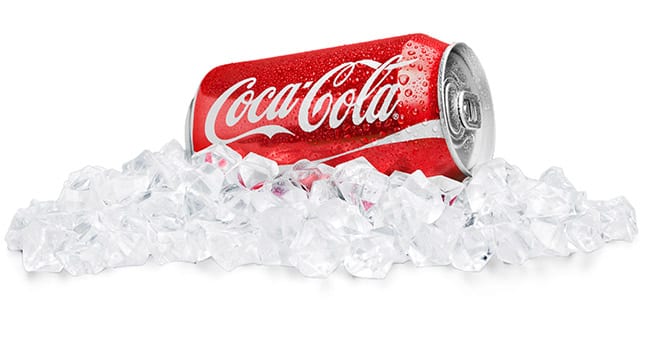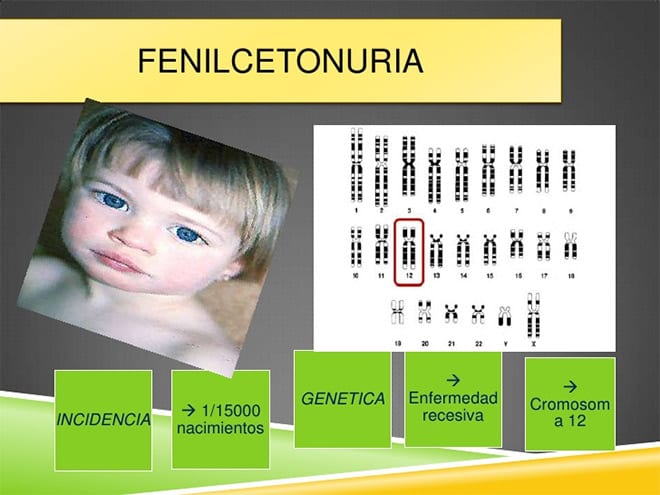
The consumption of aspartame is a controversial issue. There are certain sources that consider its use to be harmful to health and there is a lot of scientific literature along these lines. However, official institutions continue to say that it is no more dangerous than other products if the minimum recommended daily intake is not exceeded.
In this regard, for example, the United States Department of Health, in asking itself whether aspartame is safeconcludes that: Carefully controlled clinical studies show that aspartame is not an allergen. However, it isCertain people with the genetic disease phenylketonuria (PKU), people with advanced liver disease and pregnant women with hyperphenylalanine (high levels of phenylalanine in the blood) have a problem with aspartame because they do not effectively metabolise the amino acid phenylalanine, one of the components of aspartame. High levels of this amino acid in body fluids can cause brain damage.. Therefore, the FDA has decided that all products containing aspartame must include a warning to phenylketonurics that the sweetener contains phenylalanine".
What is aspartame?
Aspartame is one of the most common artificial sweeteners in use today. It is sold under the brand names NutraSweet® and Equal®. Aspartame is made by joining together the amino acids aspartic acid and phenylalanine. Amino acids are the building blocks of proteins and are found naturally in many foods.
Aspartame is used in many foods and beverages because it is about 200 times sweeter than sugar, so small amounts can be used to provide the same level of sweetness.. This, in turn, reduces the calories in the food or drink.

Rumours that aspartame causes a number of health problems, including cancer, have been around for years. Many of them are still circulating on the internet.
How are people exposed to aspartame?
Aspartame has been used in the United States since the early 1980s. It is now found in thousands of different food products.. Aspartame is commonly used as a tabletop sweetener, as a sweetener in prepared foods and beverages, and in recipes that do not require much heating (as heat breaks down aspartame). It can also be found as a flavouring in some medicines.
In the body, aspartame is broken down into phenylalanine, aspartic acid and methanol. Methanol can be toxic in large amounts, but the amounts that result from the breakdown of aspartame are lower than with many "natural" foods. For example, drinking a litre of diet soda would lead to the consumption of 55 milligrams (mg) of methanol, compared to up to 680 mg of methanol in a litre of fruit juice.
Phenylalanine and aspartic acid are amino acids and are naturally present in many protein-containing foods. They do not cause health problems in most people. However, people with phenylketonuria disease should restrict their phenylalanine intake, and are therefore advised to avoid aspartame.
How is aspartame regulated?
In the United States, artificial sweeteners such as aspartame are regulated by the Food and Drug Administration (FDA). These products must be tested for safety and approved by the FDA before they can be used. The FDA also sets an Acceptable Daily Intake (ADI) for each sweetener, which is the maximum amount considered safe to consume each day during a person's lifetime. The ADI is set to be 100 times less than the smallest amount that could cause health problems, based on studies in laboratory animals.

The FDA has set the ADI for aspartame at 50 milligrams per kilogram (mg/kg) of body weight. The European Food Safety Authority (EFSA), which regulates food additives in the European Union, recommends a slightly lower ADI for aspartame, at 40 mg/kg.
To put the ADI for aspartame in perspective, this would be 3,750 milligrams per day for a typical adult weighing 75 kilograms (approximately 165 pounds), far more than most adults consume on a daily basis. A 340g can of diet usually contains about 192 milligrams of aspartame and a packet of tabletop sweetener contains about 35 mg. An adult weighing 75 kg would have to drink more than 19 cans of diet soda a day or consume more than 107 packets to exceed the recommended level.
Does aspartame cause cancer?
Researchers use two main types of studies to try to determine whether a substance or exposure causes cancer. (A substance that causes cancer or helps cancer to grow is called a carcinogen).
In laboratory studies, animals are exposed to a substance (often in very large doses) to see if it causes tumours or other health problems. It is not always clear whether the results of this kind of study will apply to humans, but laboratory studies are the best way to find out whether a substance has the potential to cause cancer in humans before widespread exposure occurs.
Another type of study looks at cancer rates in different groups of people. Such studies might compare the cancer rate in a group exposed to a substance versus the rate in a group not exposed to it, or compare it with the expected cancer rate in the general population. But Studies in individuals can sometimes be difficult to interpret, because there may be other factors that affect the results. that are difficult to explain.
In most cases, neither type of study alone provides definitive evidence, so researchers usually study both laboratory and human studies if available.
Studies carried out in the laboratory
Many studies have looked for health effects in laboratory animals fed aspartame, often at doses in excess of 4,000 mg/kg per day throughout their lives. These studies have not found any health problems that are consistently related to aspartame.
Two studies published by a group of Italian researchers suggested that very high doses of aspartame may increase the risk of some blood cancers (leukaemias and lymphomas) in rats. However, both the FDA and EFSA have questioned these results, citing the lack of some important data in the published studies and other references..
Human studies
Most studies in people have not found that aspartame use is associated with an increased risk of cancer.
An early study suggested that an increase in the rate of brain tumours in the US during the 1980s may have been linked to the use of aspartame. However, according to the National Cancer Institute (NCI), the increase in brain tumour rates began in the early 1970s, long before aspartame was in use. And most of the increase was seen in people aged 70 and older, a group that was not exposed to the higher doses of aspartame, which may also make this link less likely. Other studies have found no increase in brain tumours linked to aspartame use.
In the largest study on this topic, NCI researchers looked at cancer rates in more than 500,000 older adults. The study found that, compared to people who do not drink beverages containing aspartame, those who drank did not have an increased risk of lymphomas, leukaemias or brain tumours..
A recent study of more than 125,000 people found a link between consumption of sugar-sweetened soda with aspartame and the risk of leukaemia, lymphoma and multiple myeloma in men, but not in women. Since it also found a link between sugar-sweetened soda and lymphoma in men, the researchers concluded that the links they found could be explained by chance.
What the expert agencies say
Expert agencies in the US and elsewhere that have evaluated aspartame have concluded that it is safe for use.
The Food and Drug Administration (FDA) regulates the use of aspartame and other artificial sweeteners in the United States. In 2007, the FDA declared:
Taking into account the results of a large number of studies on the safety of aspartame, including five previously conducted negative chronic carcinogenicity studies, a recent major epidemiological study with negative associations between aspartame use and tumour development, and negative results from a series of three transgenic mouse trials, the FDA finds no reason to alter its previous conclusion that aspartame is safe as a general purpose sweetener in food.

The European Food Safety Authority (EFSA) assesses the safety of sweeteners such as aspartame in the European Union. According to a 2009 report in its Panel on Food Additives and Nutrient Sources added to Food:
Overall, the Panel concluded, on the basis of all currently available evidence ... that there is no indication of genotoxic or carcinogenic potential of aspartame and that there is no reason to revise the previously established ADI for aspartame of 40 mg/kg [weight].
Although research into a possible link between aspartame and cancer continues, these agencies agree that studies so far have not found such a link.
Does aspartame cause other health problems?
Complaints of various health problems have circulated since aspartame first appeared on the market in the 1980s. However, for most people, no health problems have been clearly linked to the use of aspartame.
Phenylketonuria (PKU)
Phenylketonuria is a rare genetic disorder (present at birth) in which the body cannot break down phenylalanine, an amino acid found in many foods.. Phenylalanine levels can build up in the blood, preventing other important chemicals (such as amino acids) from reaching the brain. Unless phenylalanine intake is severely limited, children with PKU suffer from abnormal brain development.
PKU is usually detected in infants by a routine blood test shortly after birth. People with PKU must follow a phenylalanine-restricted diet. This is especially important in children, whose brains are still developing. It is also important in pregnant women, as it can affect the development of the foetus.

Because phenylalanine is a component of aspartame, it is important that people with PKU limit their intake of aspartame. That is why any product (including medicines) containing aspartame has the warning "phenylketonurics: contains phenylalanine".
Other health complaints
Aspartame has been claimed to be linked to health effects ranging from mild problems such as headache, dizziness, digestive symptoms and mood swings, to more serious health problems such as Alzheimer's disease, birth defects, diabetes, Gulf War syndrome, attention deficit disorder, Parkinson's disease, lupus, multiple sclerosis and seizures. However, studies to date have found no consistent evidence of harm.
Should I limit my exposure to aspartame?
Apart from effects in people with phenylketonuria, no health problems have been consistently linked to aspartame use. But research on artificial sweeteners, including aspartame, continues today.
For people who want to avoid aspartame, the easiest way to do this is to check labels before buying or eating certain foods or drinks. If aspartame is in the product, it will be listed in the ingredients. The product label will also contain the warning "Phenylketonurics: contains phenylalanine".


3 thoughts on “Riesgos del aspartamo”
I am 46 years old and was diagnosed with Parkinson's disease six years ago, presenting my first symptoms eight years ago. This first stage started with a state of sadness and depression, which led me to put on weight, and made me a heavy Cocacola Zero consumer, I drank nothing else and I drank it at every meal. My illness has evolved rapidly and I suffer from brutal episodes and blockages. I have lost a lot of weight in the last ten months, something like 13 kilos, I currently weigh 52 and my height is 1.64. I have given up coke zero for gaining weight by adding sugar to my diet, although I have reduced my source of sugar from coke and look for natural sources of sugar, leaving coke zero out of my diet and it has been brutal, how well I feel, how linear my day is in terms of my parkinsonian symptoms and the better absorption of the medication. This is affirmed by the fact that I have been able to distance my dopamine intakes to almost twice as long intervals. I was taking my medication every three hours and now I take it almost every 6 hours and of course my on/off episodes don't suffer the fluctuations that used to make me suffer brutal blocking episodes. I don't know if it has anything to do with it, I am a worker on sick leave in a supermarket, but I have certainly felt a surprising release and improvement and then I go and read all this.
I am 46 years old and was diagnosed with Parkinson's disease six years ago, presenting my first symptoms eight years ago. This first stage started with a state of sadness and depression, which led me to put on weight, and made me a heavy Cocacola Zero consumer, I drank nothing else and I drank it at every meal. My illness has evolved rapidly and I suffer from brutal episodes and blockages. I have lost a lot of weight in the last ten months, something like 13 kilos, I currently weigh 52 and my height is 1.64. I have given up coke zero for gaining weight by adding sugar to my diet, although I have reduced my source of sugar from coke and look for natural sources of sugar, leaving coke zero out of my diet and it has been brutal, how well I feel, how linear my day is in terms of my parkinsonian symptoms and the better absorption of the medication. This is affirmed by the fact that I have been able to distance my dopamine intakes to almost twice as long intervals. I was taking my medication every three hours and now I almost take it every 6 hours and of course my on/off episodes don't suffer the fluctuations that used to make me suffer brutal blocking episodes. I don't know if it has anything to do with it, I am a worker on sick leave in a supermarket, but I have certainly felt a surprising release and improvement and then I go and read all this.
Good morning, this is a general information blog associated with the activity of Biosalud Day Hospital, if you need more information you can contact us.
Comments are closed.